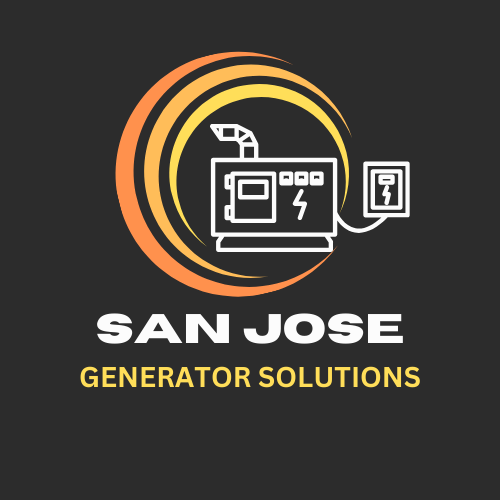Whole House Generator Company In Robertsville CA
We specialize in providing reliable whole house generators to ensure that your home remains powered even during unexpected outages. Our mission is to offer top-notch products and services tailored to meet the unique needs of our clients.
Overview of Whole House Generators
A whole house generator is a backup power system that can power your complete house in the event of a power loss. Unlike portable generators, which only power a few devices, whole house generators can run multiple appliances, heating systems, and even central air conditioning units. They are typically installed permanently and are connected to your home's electrical system, providing a seamless transition when the power goes out.
Types of Fuel for Whole House Generators
- Natural Gas: This is a popular choice for many homeowners because it offers a continuous and reliable fuel source. Natural gas generators are connected to your home's gas line, which means you don’t need to worry about refueling. They are efficient and generally produce fewer emissions.
- Propane: Propane generators are another excellent option. They are highly portable and can be stored in a tank on your property. Propane is a clean-burning fuel, and propane generators are known for their efficiency and long run times.

3. Diesel: Diesel generators are powerful and durable, making them suitable for larger homes or commercial properties. They are known for their long lifespan and ability to handle heavy loads. However, they require more maintenance and can be noisier compared to gas or propane generators.
4. Solar-Powered: Solar generators use solar panels to convert sunlight into electricity. They are environmentally friendly and have low operating costs, but they may require battery storage and depend on weather conditions. Solar generators are ideal for those looking to reduce their carbon footprint.
Things to Take Into Account Before Choosing a Whole House Generator
Choosing the right whole house generator involves several key considerations:
- Power Requirements: Determine the watts required to run your most important systems and appliances.This includes everything from refrigerators and heating systems to home security systems and sump pumps. Accurately assessing your power needs ensures that you select a generator with sufficient capacity.
- Fuel Type and Availability: Consider the fuel options available in your area and your preferences. Each fuel type has its benefits and drawbacks, so choose one that aligns with your needs and resources.
- Automatic Transfer Switch vs. Manual Start: Automatic transfer switches provide seamless power transfer when the grid fails, while manual start generators require you to switch power sources manually. Automatic systems offer greater convenience and reliability.
- Noise Levels and Location: Evaluate the noise levels of different generators, especially if you live in a densely populated area. Choose a model that fits well with your home's layout and adheres to local noise regulations.
- Weather Resistance: Ensure that the generator you choose is designed to withstand local weather conditions. Many generators are built with weather-resistant enclosures to protect them from rain, snow, and extreme temperatures.
Installation Process
The installation of a whole house generator involves several steps:
- Site Assessment and Planning: A professional installer will assess your property to determine the best location for the generator. Factors such as accessibility, proximity to the fuel source, and ventilation are considered.
- Permits and Regulations: Depending on local regulations, you may need permits for installation. Our team will handle the necessary paperwork and ensure that all installations comply with local codes and standards.
- Professional Installation: Skilled technicians will handle the installation process, including setting up the generator, connecting it to your home's electrical system, and installing the transfer switch. The performance and safety of the generator depend heavily on proper installation.
- Initial Testing and Setup: After installation, the generator is tested to ensure it operates correctly. This includes checking the electrical connections, fuel supply, and system performance.
Maintenance Tips and Upkeep
Maintaining the proper operation of your entire home generator requires routine maintenance. Here are some key tips:
- Routine Inspections: Schedule regular inspections to check for any issues or wear and tear. This helps identify potential problems before they become major issues.
- Oil and Filter Changes: Change the oil and filters according to the manufacturer’s recommendations. Frequent maintenance prolongs the life and performance of engines.
- Battery Maintenance: Check the battery regularly to ensure it is charged and in good condition. Batteries should be replaced as needed to avoid power interruptions.
- Exercising the Generator: Run the generator periodically to keep it in good working order. This helps prevent fuel degradation and ensures that the generator is ready to perform when needed.
- Professional Maintenance Plans: Consider enrolling in a professional maintenance plan for regular servicing and peace of mind.
Common Myths and Misconceptions
Several myths surround whole house generators. Let’s debunk a few:
- “Whole House Generators Are Too Expensive”: While the initial cost may seem high, a whole house generator provides long-term value and reliability. It ensures that your home remains powered during outages, protecting your appliances and comfort.
- “Installation Is Complicated and Disruptive”: Professional installation is streamlined and minimally disruptive. Our team manages the entire process efficiently, so you can enjoy peace of mind without extensive disruption.
- “Maintenance Is Too Time-Consuming”: Routine maintenance is manageable and ensures the longevity of your generator. Following the recommended maintenance schedule helps prevent unexpected issues.
- “Generators Are Noisy and Unreliable”: Modern generators are designed to be quieter and more reliable than ever. Noise levels have decreased with advancements in technology, and regular maintenance enhances reliability.
Advantages of Owning a Whole House Generator
Purchasing a complete home generator has several benefits:
- Uninterrupted Power: A whole house generator provides continuous power during outages, ensuring that essential appliances and systems remain operational.
- Protection for Home Appliances: Protect your appliances from damage caused by power surges or outages. This helps extend their lifespan and avoid costly repairs.
- Peace of Mind: Knowing that you have a reliable backup power source provides peace of mind, especially during severe weather or emergencies.
- Increased Property Value: A whole house generator can increase your property’s value, making it an attractive feature for potential buyers.
What We Offer
At our company, we provide comprehensive whole house generator services in Robertsville, CA. This includes:
- Residential Generators
- Commercial Generators
- Portable Generators
- Electric Generators
- Propane Generators
- Solar Generators
- Generator Repairs
- Generator Maintenance
- Generator Parts
Contact us today to learn more about how we can help you keep your home powered and secure with a reliable whole house generator.
